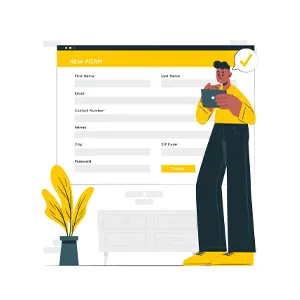When a company wants to grow or expand its operations, it typically requires additional funding. One of the common ways to raise funds is by increasing its paid-up capital. But before doing so, the company must go through a legal process called filing, where it submits the necessary documents and forms to the Ministry of Corporate Affairs (MCA). This filing is proof that the company has legally taken steps like increasing capital or allotting new shares to investors.
Paid-up capital means the money that a company has received from shareholders in exchange for issuing shares. Increasing paid-up capital helps the company get more funds to manage its business, clear debts, or invest in new projects. There are mainly three methods through which a company can increase its paid-up capital.
The first method is called Private Placement, where the company offers shares to a selected group of people, such as high-net-worth individuals or institutional investors. This is a private way of raising funds without offering shares to the general public. The second method is known as a Rights Issue, where the company offers extra shares to its existing shareholders. Shareholders can buy these additional shares, usually at a discounted price, based on how many shares they already own. The third method is Conversion of Loan into Equity, where a loan taken by the company is converted into shares instead of being paid back in cash. This helps reduce the company’s liabilities and increases its capital at the same time.
Increasing the paid-up capital is important for several reasons. It helps the company meet minimum capital requirements for government tenders, registrations, or licenses. It also improves the financial image of the company, making it more attractive to investors and lenders. A higher capital base strengthens the company’s creditworthiness and makes it easier to get loans. It provides the funds needed to grow the business, launch new products, or enter new markets. Most importantly, by reducing reliance on loans and increasing capital, the company becomes financially more stable and ready to face future challenges.




It boosts the net worth of the company, making it look stronger financially in the eyes of banks and investors.
Banks and financial institutions are more likely to lend money to companies with higher capital.
Investors feel more confident in putting money into a company that has shown growth and proper capital structure.
Converting loans into equity means fewer liabilities on the balance sheet.
Many government and corporate tenders have minimum capital requirements which can be fulfilled through capital increase.
The extra funds raised through share allotment can be used for scaling up operations, hiring, or buying assets.
Unlike loans, money raised through equity does not have to be repaid, reducing financial pressure.
Existing owners can retain control of the company by participating in the rights issue rather than bringing in outsiders.
Proper filing ensures that the company is fully compliant with MCA and avoids penalties, future disputes, or disqualification.
There is no fixed minimum amount to increase paid-up capital; it depends on the company’s requirements. However, companies must ensure that the money received is genuine and received through proper banking channels. Even a small increase must follow due legal process and filing.
Yes, PAS-3 is a mandatory form to be filed with the Registrar of Companies after share allotment. It contains details like the number of shares allotted, the names of allottees, and the method of payment. Without this, the increase is not considered valid.
Typically, it takes 10–15 working days to complete the process, provided all documents and approvals are in place. However, delays may occur if forms are rejected or additional clarifications are needed.
Yes, a loan from the director or any person can be converted into equity by passing a board resolution, getting shareholder approval, and following ROC filing procedures. It helps reduce liabilities and increase capital.
Non-filing can lead to penalties, disqualification of directors, and invalidation of the share allotment. It’s a legal obligation to inform MCA about any changes in capital structure.
In case of private placement or allotment to non-residents, a valuation report is mandatory. It must be obtained from a registered valuer to ensure fairness and compliance with regulations.
Yes, a company can increase paid-up capital at any time, but it must follow proper procedures, take necessary approvals, and file the required forms. The decision should be aligned with the company’s financial goals.
No, the existing current account of the company can be used, but it is mandatory that the funds are received through a traceable mode like NEFT/RTGS/cheque and not in cash.
Rights issue itself does not require ROC approval before offering, but after allotment, it is mandatory to file forms with the ROC to record the change in paid-up capital.
Only identified persons such as directors, promoters, HNIs, or institutions who are approved by the board and shareholders can participate in private placement. It’s not open to the general public.